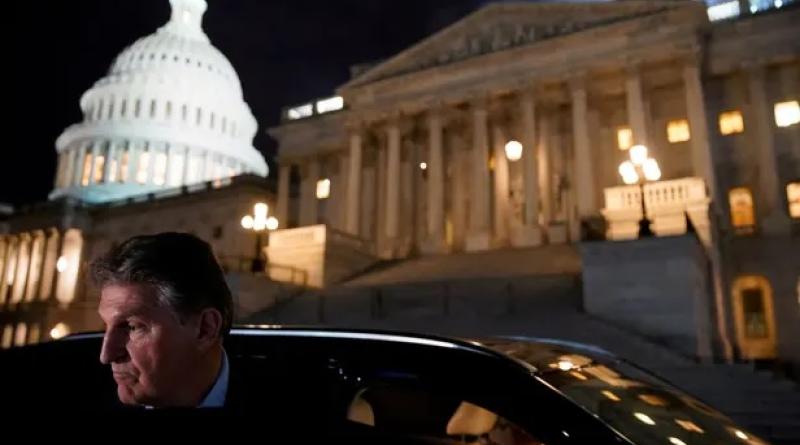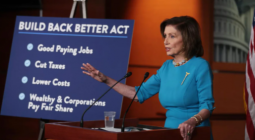By ditching landmark climate legislation, America makes the world unsafe

The rest of the world needs to start treating the US as what it is: a dangerous country that needs to be reined in
As the now very likely collapse of the Build Back Better Act underlines, what’s exceptional about the United States is its extraordinary ability to dole out harm. Besides its ever-ballooning military budget and foreign wars, America also makes the world unsafe thanks to the prodigious amount of fossil fuel it continues to send around the world.
Oil Change International, Earthworks and the Center for International Environmental Law have found that burning the oil and gas expected to be drilled in the US alone over the next decade could gobble up 10% of the entire world’s remaining carbon budget, the amount of carbon dioxide that can be released before the planet warms above 1.5C.
The Build Back Better Act wouldn’t have made a dent in that drilling, of course: constraining US fossil fuel production or exports has been a political third rail on both sides of the aisle, despite John Kerry having spent months hectoring other smaller and less wealthy nations about their own fossil fuel use in the lead-up to Cop26.
Just last week, energy secretary Jennifer Granholm went out of her way to assure oil executives that the administration wouldn’t reinstate the longstanding crude oil export ban, assuring them: “I don’t want to fight with any of you.”
West Virginia Senator Joe Manchin – whose promised no vote on Build Back Better seems to have hammered the nail into Biden’s legislative agenda – made half a million dollars last year off his family’s coal business, and was reportedly speaking weekly with ExxonMobil lobbyists this spring. But he’s hardly the only Democrat furthering the fossil fuel industry’s interests.
What the Build Back Better bill represented was a bare minimum, at best: the roughly $55bn a year the bill would spend on incentives for renewables deployment, building upgrades and electric vehicles over the next decade is roughly half of what Americans spent on caring for their pets in 2020, and pales in comparison to the $768bn one-year Pentagon budget that breezed through both chambers last week.
Even the White House’s topline goal of reaching net-zero emissions by 2050 is dangerously behind the times: that’s when the entire world should be carbon neutral. With its vast resources and outsized historical responsibility for the climate crisis, the US should get there much, much sooner. But what the United States should do to reduce emissions and what its staid, corporate-captured democratic institutions are capable of at this moment are two different things.
That’s not to say the fight is over. Congressional leadership could finally call Manchin’s bluff and force a vote on Build Back Better. Biden has a slew of emissions-cutting executive actions at his disposal should he choose to use them, including the EPA’s ability to regulate carbon dioxide. And there are exciting victories at the state and local level to build on.
But the road ahead is a rocky one. With a deadly Omicron surge encroaching, the child tax credit about to lapse and student loans payments starting up again in February, Democrats will struggle to point voters to success stories during next year’s midterm elections without Build Back Better in hand.
They face a potential blowout in the House, where a Republican majority may well refuse to recognize that any Democrat could win the 2024 presidential election. It’s very likely that the United States, the world’s largest economy and second biggest greenhouse gas emitter, will not pass its first-ever comprehensive climate legislation for at least a decade.
Should they take back control in Washington, Republicans will expand drilling as quickly as possible, rest of the world be damned. Countries committed to seeing temperatures not rise above 1.5 or 2C should start treating the US for what it is: an exceptionally dangerous country that needs to be reined in.
-
Kate Aronoff is a staff writer at The New Republic and the author of Overheated: How Capitalism Broke the Planet – And How We Fight Back
Cover photo: ‘The fight is not over, but the road ahead is a rocky one.’ Photograph: Elizabeth Frantz/Reuters





